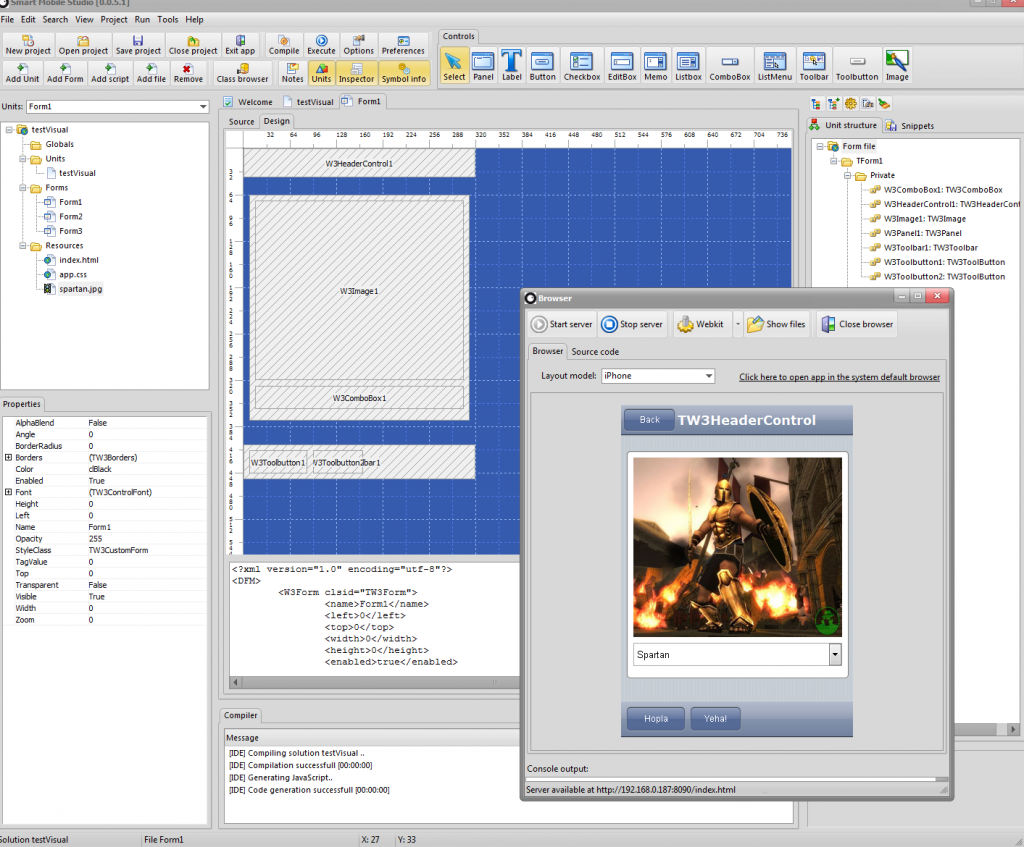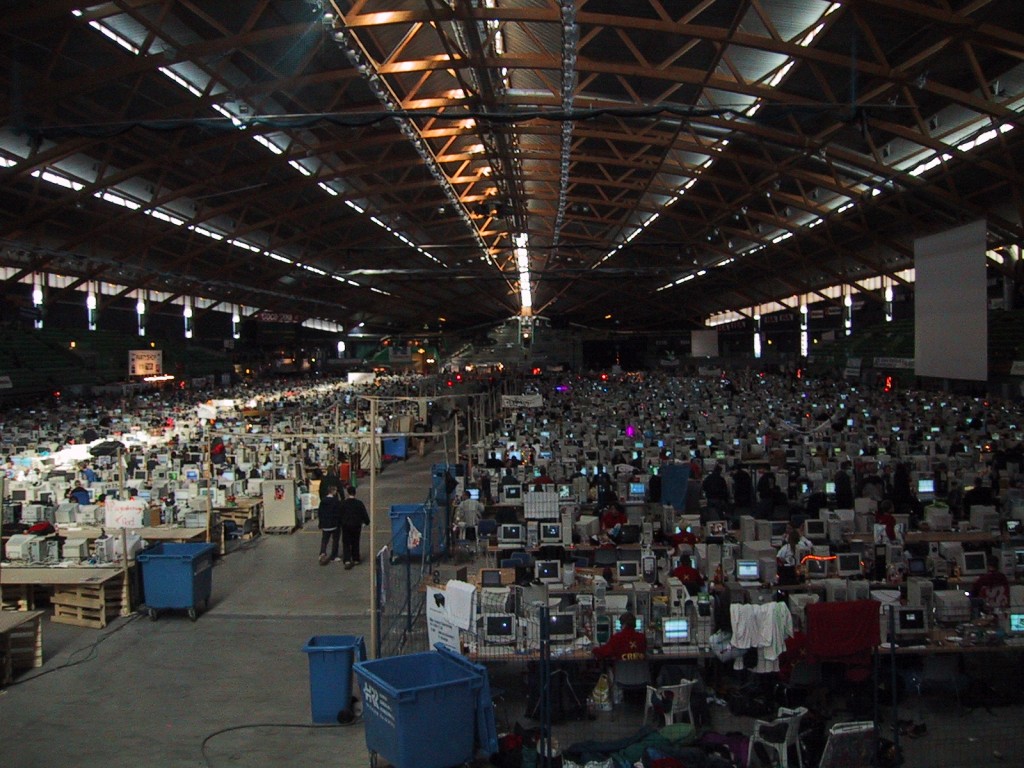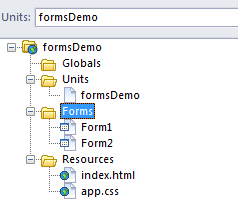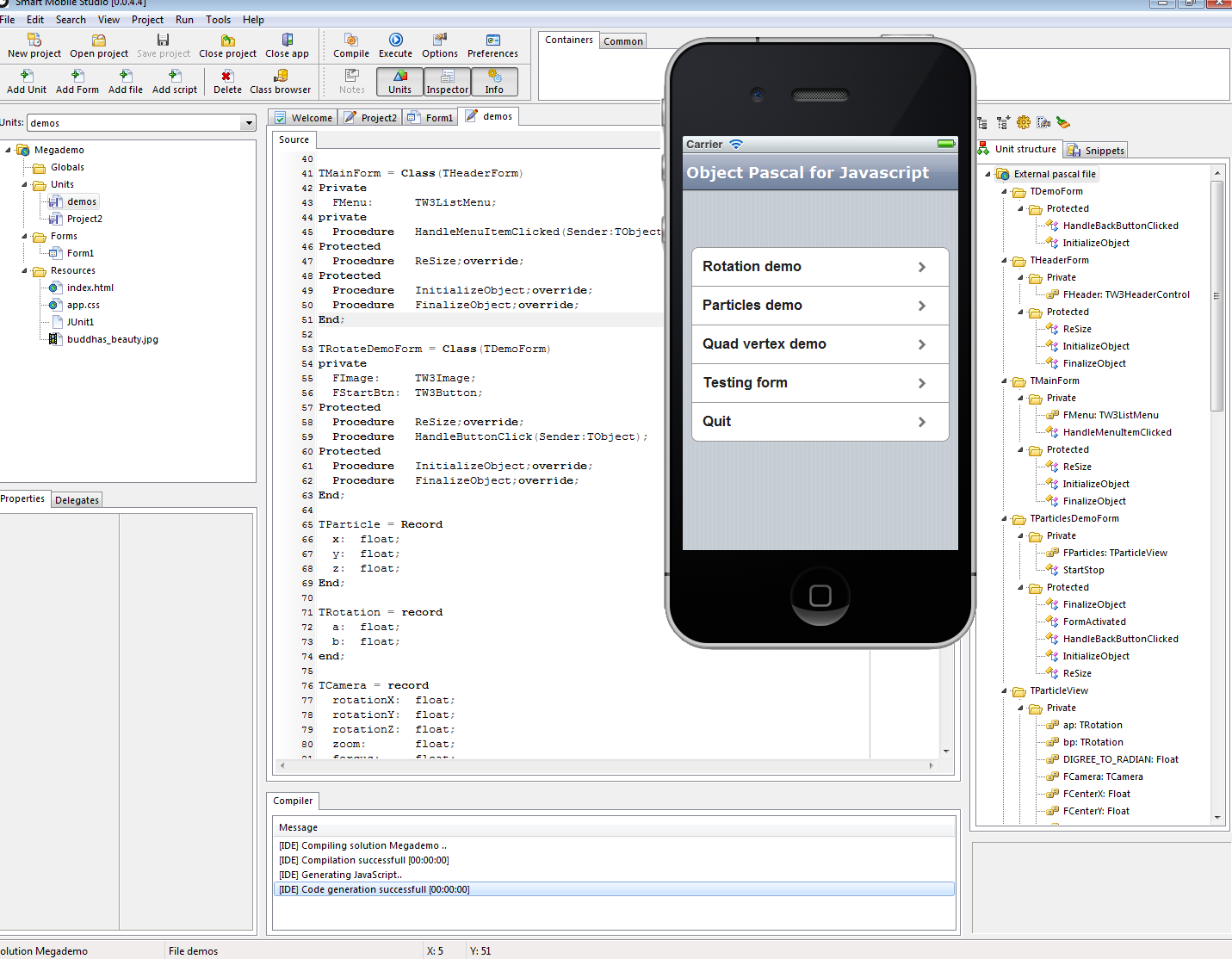Events are fun right? Well, only in part to be honest. For example, what do you do if you want to catch the same event but at different places?
This is where JavaScript’s addEventListener() comes into play. In short it allows you to add as many event-handlers to the same event as your heart desires. But raw unadulterated JavaScript is a bit of a mess, so I decided to wrap this up in clear cut objects. Oh, and I added a “fixed” event for when you want to have objects for standard events as well.
So now whenever you want to hook an event without ruining your published event-handlers (for instance in TW3CustomControl) you can just use one of these 🙂
Enjoy!
unit eventobjs;
interface
uses
w3c.dom,
SmartCL.Components,
SmartCL.System;
type
TEventObjTriggeredEvent = procedure (sender:TObject;EventObj:JEvent);
TEventObj = class(TObject)
private
FOwner: TW3TagObj;
FAttached: Boolean;
FEventName: String;
protected
procedure HandleEvent(eobj:variant);virtual;
public
Property Attached:Boolean read FAttached;
procedure Attach(EventName:String);
procedure Detach;
constructor Create(AOwner:TW3TagObj);virtual;
destructor Destroy;Override;
public
Property EventName:String read FEventName;
Property Owner:TW3TagObj read FOwner;
Property OnEvent: TEventObjTriggeredEvent;
end;
TFixedEventObj = class(TObject)
protected
FAttached: Boolean;
FOwner: TW3TagObj;
procedure HandleEvent(eobj:variant);virtual;
protected
function DoGetEventName:String;virtual;abstract;
public
Property Attached:Boolean read FAttached;
procedure Attach;
procedure Detach;
constructor Create(AOwner:TW3TagObj);virtual;
destructor Destroy;override;
public
Property Owner:TW3TagObj read FOwner;
Property OnEvent: TEventObjTriggeredEvent;
end;
TElementRemovedEvent = class(TFixedEventObj)
protected
function DoGetEventName:String;override;
end;
TElementAddedEvent = class(TFixedEventObj)
protected
function DoGetEventName:String;override;
end;
implementation
//#############################################################################
// TElementAddedEvent
//#############################################################################
function TElementAddedEvent.DoGetEventName:String;
begin
result := "DOMNodeInserted";
end;
//#############################################################################
// TElementRemovedEvent
//#############################################################################
function TElementRemovedEvent.DoGetEventName:String;
begin
result := "DOMNodeRemoved";
end;
//#############################################################################
// TFixedEventObj
//#############################################################################
constructor TFixedEventObj.Create(AOwner:TW3TagObj);
begin
inherited Create;
FOwner:=AOwner;
Attach;
end;
destructor TFixedEventObj.Destroy;
begin
Detach;
inherited;
end;
procedure TFixedEventObj.Attach;
begin
if FAttached then
Detach;
FOwner.Handle.addEventListener(DoGetEventName,@HandleEvent,true);
FAttached := true;
end;
procedure TFixedEventObj.Detach;
begin
if FAttached then
begin
FOwner.Handle.removeEventListener(DoGetEventName,@HandleEvent,true);
FAttached := false;
end;
end;
procedure TFixedEventObj.HandleEvent(eObj:variant);
begin
if assigned(OnEvent) then
OnEvent(self, JEvent(eObj));
end;
//#############################################################################
// TEventObj
//#############################################################################
constructor TEventObj.Create(AOwner:TW3TagObj);
begin
inherited Create;
FOwner := AOwner;
end;
destructor TEventObj.Destroy;
begin
if FAttached then
Detach;
inherited;
end;
procedure TEventObj.HandleEvent(eobj:variant);
begin
if assigned(OnEvent) then
OnEvent(self,JEvent(eObj));
end;
procedure TEventObj.Attach(EventName:String);
begin
if FAttached then
Detach;
FEventName := EventName;
try
FOwner.handle.addEventListener(FEventName,@HandleEvent,true);
except
FEventname:= '';
FAttached:=false;
exit;
end;
FAttached:=true;
end;
procedure TEventObj.Detach;
begin
if FAttached then
begin
try
FOwner.handle.removeEventListener(FEventName,@HandleEvent,true);
finally
FEventName := '';
FAttached := false;
end;
end;
end;
end.















